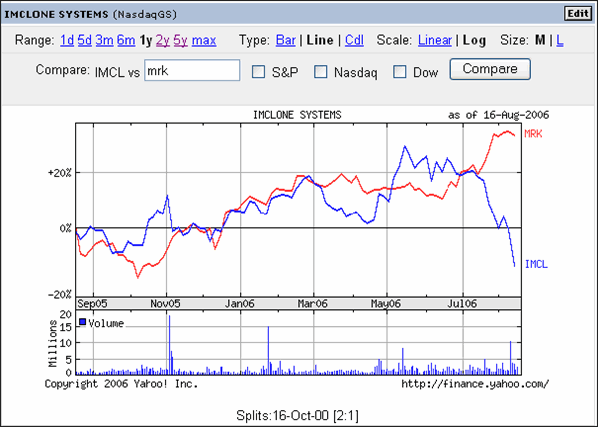Do day traders typically trade a few stocks over and over again or do they usually pick any stock that rolls around? Most day traders trade just a few stocks and many day traders work with just a single stock. What's the benefit of trading just one stock or just a few? It's more manageable and eventually you will become familiar with the personality and behavior of the stocks that you are trading and your trading effectiveness often increases. Today we will discuss a more simple trading system and we will also discuss risk reduction.
I Know Sandisk
A great case for trading a smaller list of stocks is that you will also be dealing with the same stocks over and over and it will become easier to keep up with events like earnings and news events. For example, I once knew a trader who was trading SNDK very often. He only traded a handful of stocks and SNDK was one of them. One typical Tuesday, SNDK went up 5%. Lots of traders sold the next day but not my friend. He was extremely familiar with the stock and took at least a moment's glance each day at headlines on the stock. Instead of taking profits like other traders on the stock, he held and the stock catapulted over 100% in less than 3 months! He later told me that he knew historically that in additional to the technical indicators he used, he also held on because 5% surging days were normal for SNDK and not reason for alarm or profit taking. This is a great case study of how being familiar with a stock can be beneficial.
Trading vs. Investing
In addition to the above example, you have to ask yourself this question: How do I benefit from trading a list of 1000 stocks? I think that's where most traders confuse trading with investing. Many investors take a bottom up approach when selecting investments. That means that they first look at companies and they care less about broad economic trends and sectors. Because they are looking at companies first, they need a huge list to choose from so that they can find the few gems that exist. But when it comes to trading, we typically are looking for short term fluctuations that have little or nothing to do with fundamental, long-term changes in the company. That means that a huge list of stocks may not be necessary.
So here's what part-time and some full time traders can do to narrow down their lists of stocks. Consider specializing in one industry or just a few. One of our traders likes to specialize in about 9 industries each with about 6 stocks in them. Instead of coming up with a single system that works across all industries, he finds it effective to develop an individual system (using computer tested indicators) for each industry. If you are a trader who uses a 1000-strong stock list, consider shrinking that list down to 200, 100, or fewer stocks. The advantages of the large stock list often do not outweigh the benefits.
The Mysteries of Risk Reduction
We all know that most of the time gold is inversely correlated with the market and oil stocks often move the opposite way of airlines. We can use this knowledge to trade non- correlated stocks and reduce overall risk in our portfolios. Which industry has very low correlation and sometimes an inverse correlation with tobacco? Is it semi conductors or life insurance? The answer is semiconductors. In fact, these 2 industries are often inversely correlated. Life insurance stocks on the other hand are often highly correlated with tobacco stocks. It's hard to explain, but it's true. This knowledge is very valuable whether you are trading a large list or a small list of stocks. I find that sometimes, I have 2 stocks that I want to buy and it comes down to a split decision. Which one do I choose? Well, if I currently had Altria (formerly Phillip Morris) in my portfolio, then I would choose Intel over Prudential to add to my portfolio. The overall portfolio risk would be MUCH lower because the assets have low or inverse correlation most of the time. 2 more industries that have low and sometimes inverse correlation are biotech stocks (such as Imclone) and pharmaceuticals stocks (such as Merck). Most people would guess that these stocks are highly correlated, but they are not. The point of all of this is that if possible, pay attention to correlation so that you can reduce risk in your portfolios while reducing returns only marginally and sometimes not at all. Be disciplined, and trade well! .
Imclone vs. Merck

Price Headley is the founder and chief analyst of BigTrends.com.